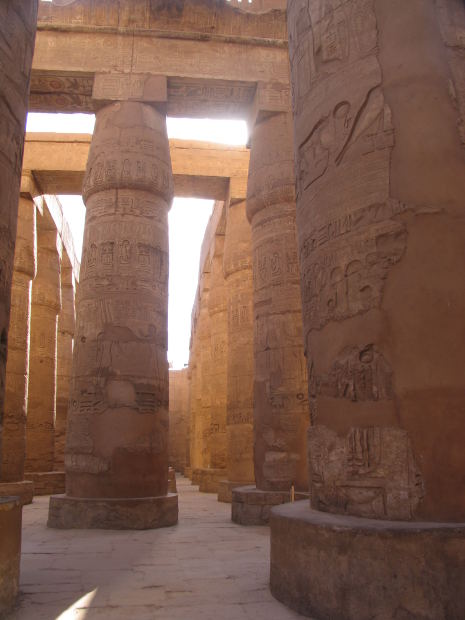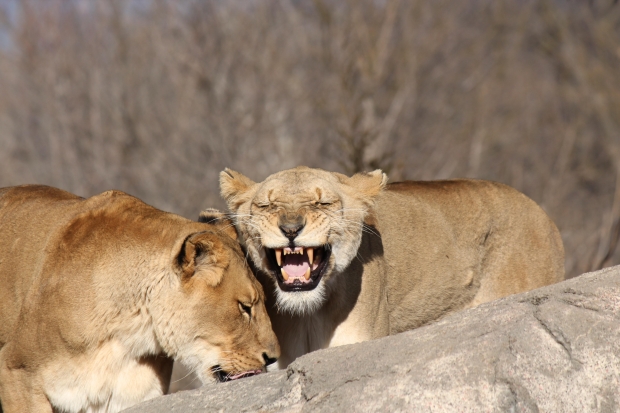One thing I have been really searching for in my reading for the past year or so is to grasp the surrounding context of the biblical events. I’ve been spending a good bit of time with my nose in the biblical atlas and the encyclopedia, trying to fill in the gaps.
One of the things I’ve noticed is there was human sacrifice in the Old Testament era. This is one of those things that gets kind of glossed over by modern historians, but we see it in Leviticus 18:21, 20:1-5, Deuteronomy 12:31,2 Kings 17:17, 21:2-6, Psalm 106:37, Ezekiel 16:20-21, Jeremiah 7:30-34, and still more places. The ancient gods Molech and Asherah, to name just two, apparently involved child sacrifice that reached its sinfulness even into Judah.
This was news to me.
The invisible God.
It’s into this context that we find Abraham wandering around Canaan, offering what to His God? Animals. In the middle of a culture that has fairly ornate worship, that demands people sacrifice their own children to the flames, where people bow down to idols made of wood and stone—and then there’s this comparatively very strange God, YHWH. He’s invisible. Huge leap of faith right there. And what He asks? Obedience. Exclusivity. And… animals.
I was thinking what an odd, terrifying thing it must have been to live in a culture where children were selected to meet their doom for their parents’ sins. The price of sin, the price of rain and a good harvest, the price of blessings—what a terrible price these people grew accustomed to paying.
I guess I always had this vision of pagan peoples not really thinking there was a price for sin at all, but the more I think about it, it’s really kind of astounding that in the middle of all their sinful ignorance, they had caught on to one key reality: they needed blood.
And then there was YHWH, and His acceptance of mere animals. It might have seemed like such a relief in juxtaposition to the pagan cultures around them: here is a God who does not want the blood of your sons and your daughters! He declares those practices are an abomination. And so Abraham brought his animals to the altar, year after year, and YHWH promised the impossible son, and Isaac was born at last. A faithful, powerful God, who only asks for animals.
Then comes Genesis 22.
After these things God tested Abraham and said to him, “Abraham!” And he said, “Here I am.” He said, “Take your son, your only son Isaac, whom you love, and go to the land of Moriah, and offer him there as a burnt offering on one of the mountains of which I shall tell you.”
I can’t even begin to imagine what must have run through Abraham’s mind. I’ve heard sermon after sermon about how because Abraham knew all along that God was going to provide a ram. But the text says it was a test. After all these years, YHWH was asking for a human sacrifice, just like the pagan idols around them.
And Abraham got up, got on his donkey, grabbed Isaac, some servants, and some wood to burn, and obediently went off to Moriah.
When they came to the place of which God had told him, Abraham built the altar there and laid the wood in order and bound Isaac his son and laid him on the altar, on top of the wood. Then Abraham reached out his hand and took the knife to slaughter his son.
This is the part that’s really incredible to me. They get there, and Abraham doesn’t look around to ask God when He’s going to find a ram in the thicket. No. He ties Isaac up on the altar, takes the knife, and reaches to sacrifice his son. He was invested in the follow-through here, he was really going to do it.
And then… God interrupts.
Abraham does seem to know God is going to interrupt, because he assured Isaac of this and he told the servants that they would come back after making the sacrifice, and not Abraham alone. But it’s equally clear that Abraham was proceeding all the way to the very end to sacrifice his son, without holding back his obedience. If blood was required, blood was what Abraham would give.
In light of Christ, the passage has yet another dimension: blood was required. Human blood was required. But instead of asking His followers to sacrifice their children, God chose to sacrifice His own Son. And in the meantime, His people sacrificed only their animals, in waiting faith, trusting that “God will provide for himself the lamb.”




